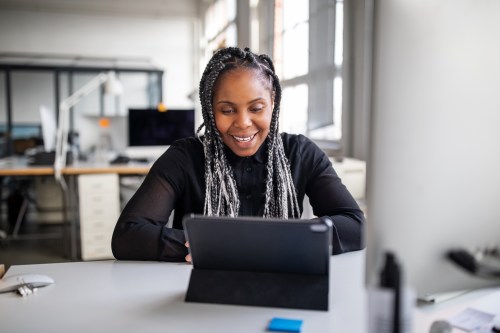How To Be Okay With Loose Plans in Your Life
Dealing with loose plans is never easy. Here, Elizabeth Cush explains how we can better manage and prepare when things go awry.

Officially a year into the pandemic, nothing much has changed. From Zoom happy hours to FaceTime calls with friends and family, the online space has basically become our new reality. A life lived online allows for much more flexibility with plans than ever before, which can be frustrating if you’re the kind of person that likes to stick with a schedule. If there’s anything that the pandemic has taught us, it’s that anything can happen. Here’s what an expert says about managing loose plans.
Experts in This Article
Elizabeth Cush, LCPC, is a licensed clinical professional counselor.
“One of the hardest things about the pandemic is the canceled or postponed events. We’ve lost the ease of gathering around the things we look forward to that we use to mark time passing, like weddings, funerals, birthdays, and holidays,” Elizabeth Cush, LCPC, licensed clinical professional counselor tells Well+Good. Cush says that you might feel frustrated or get upset as a result of plans changing or getting canceled. Thankfully, Cush has some tips on how you can better manage your feelings for when plans change.
How to be okay with loose plans
1. Acknowledge what you can and can’t control
Cush says that stress can be caused by things being out of our control such as canceled or postponed events. “When we can acknowledge what we can’t control for, we can better manage our expectations,” says Cush. “Remembering that this is an extraordinary time can help us feel more comfortable with how loose we have to be around things that were more predictable in the past.”
2. Express compassion for yourself and others
When plans fall through, it can feel easy to be hypercritical and judgmental of yourself and others. This can make you feel isolated, hurt, or angry when people cancel last minute or you can no longer attend the webinar you have been wanting to see. “When we find that we’re judging others, feeling angry or hurt, we can offer ourselves and others some compassion for how hard it is to live during COVID times,” Cush says. Whenever you are feeling these emotions, Cush recommends expressing compassion not only for ourselves, but for others as well. “Compassion and self-compassion can help us feel less alone.”
3. Recognize you are not alone
This is an unusual time in people’s lives. Cush says that keeping things loose isn’t easy for others, but continuing to remind yourself that you are not alone can help you feel connected even in the most uncertain of times.
Have you checked out The Well+Good SHOP? Our editors sift through hundreds of products every week so that you don’t have to—and now, you can find their faves (from skin care to self care and beyond) in one carefully curated space. What’re you waiting for? Get shopping!
Sign Up for Our Daily Newsletter
Get all the latest in wellness, trends, food, fitness, beauty, and more delivered right to your inbox.
Got it, you've been added to our email list.








